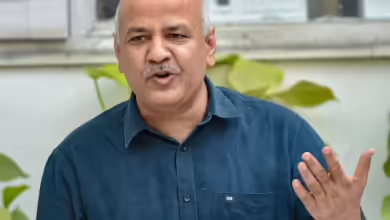IMA’s manifesto calls for more health spending and reduced GST
It is recommended that the national allotment to the health sector be raised from the current 1.1% to 5% of GDP, or at the very least, to 2.5 percent. According to the Indian Medical Association’s (IMA) health manifesto, the current allocation is the lowest in the world.

All political parties received the manifesto and were asked to include it into their electoral manifestos for the Lok Sabha elections.
The national president of IMA, Dr. RV Asokan, told TNIE that the total amount allotted by different governments ranges from 1.1% to 1.6% of GDP. Additionally, costs related to health factors such as sanitation and drinking water have to be paid for separately. According to the manifesto, India’s total health expenditure (public and private) is now projected to be 3.8% of GDP, which is less than the average for Low and Middle Income Countries (LMIC), where the figure is around 5.2% of GDP. The majority of the money used to fund India’s health system comes from household out-of-pocket (OOP) expenses, which account for around 63% of total health expenditures.
The manifesto also emphasizes the need of replacing the current insurance model system with a universal healthcare package. Every person should have access to basic medical care, according to Asokan. With a tax-funded paradigm, the public sector ought to be the primary participant in healthcare. Taxes and other expenses shouldn’t be placed on an ailing individual. Although government hospitals provide free medical care to the underprivileged, the government need to also pay for their care at private hospitals.
The committee’s advice for a model to bolster the public sector, which is now with the Planning Commission, was also included in the manifesto. According to Dr. Asokan, Ayushman Bharat should not be used to connect government medical institutions. He claimed that in government hospitals, care is free for the underprivileged and is subsidized. It ought to be administered in private hospitals instead. The need to lessen the GST burden is also emphasized in the IMA platform. Patients now pay a levy on prescription drugs, beds, and other medical goods.
Hospitals and the government are charging patients instead of providing them with care. Someone has to stand up and demand that the law be changed. Hospital services should also be scientifically priced, with fees set after a comprehensive investigation. Hospitals now burden people with exorbitant fees, he continued.







